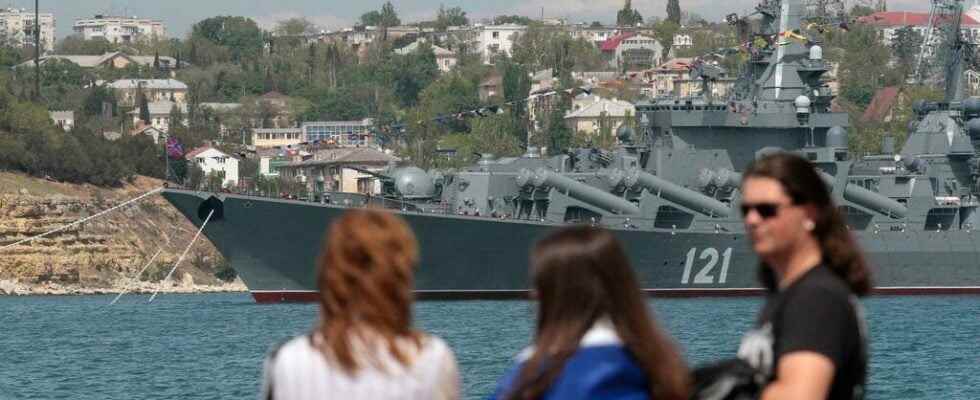Thirty years after the fall of the USSR, a major conflict continues between the two former Soviet socialist republics, Ukraine and Russia. In Crimea annexed by Moscow, in 30 years, we had 3 passports: Soviet, Ukrainian and now Russian. The guns are rumbling nearby, in the Donbass, geopolitical tensions remain high and those in everyday life too. Youri Yougansson was born in Sevastopol in the Soviet Union, Russian by his father and Ukrainian by his mother. He now has children in both countries. This sailor turned photographer takes a unique look at the past 30 years.
Sparkling eyes and white mustache, Youri Yougansson welcomes you to the family apartment on the heights of Sebastopol. On the wall, a red and beige patterned carpet, inherited from his deceased mother. On the living room table, Crimean white wine, tea served in cups and a white teapot with bright blue patterns.
” This very famous motif was created by an artist from the Lomonosov porcelain factory in Leningrad. She lived the siege of the city during the Second World War, when you put tape on the windows to prevent them from breaking under the bombardments. You see these cross-shaped designs on the teapot ? Well, it comes from his memory of his time. “
Born in 1956, Youri judges that he did not inherit from this period simply solid Soviet porcelain: “ The Soviet values and principles in which I grew up remain the ones that still guide me today. It is above all a patriotism in the good sense of the word, that is to say that it is not an exacerbated patriotism, which would make me want to take a machine gun and go on the attack, but rather, by example, not to spit next to the trash, not to throw garbage in the streets. My mother is Ukrainian from Odessa and my father is Russian from Leningrad. In our country, in principle, we did not talk about nationalities. Even at school we didn’t talk about it either “.
” The transition period left me with bad memories “
Sitting across from him on a brown velvet armchair, his stepdaughter Elena Bogdanova rolls her eyes. Born in 1976, the fall of the USSR and her passport which became Ukrainian marked a rupture for her: ” For me, Sevastopol has always been under the authority of Moscow, and in my memory, there was hardly a school in each city where we learned in Ukrainian. In any case, this language, I had never practiced it. In 1991, I was thinking of entering the faculty of physics and mathematics, and there we were told that we would take the exams in Ukrainian. It was a big mistake on the part of the new authorities. This period of transition between the two states left me with bad memories. It put us in a very bad mood for a long time, and as far as I’m personally concerned, definitely “.
A shadow hangs in the warm living room, that of Yuri’s family: ” I have three daughters from my wife’s first marriage. Two daughters stayed here, and the third is married to a Ukrainian naval officer, and she now lives there. Personally, I could live in any country “.
Extremely rare in a region where no one remembers aloud that Russians and Ukrainians shared the same ball of naval officers. Since 2014, only the Russian flag has flown above the naval base.
